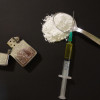Your doctor knows you are at increased risk of getting cancer. You'd want to know, right?  Or maybe not. The UK Government announced at the end of 2012 that it would decode the genome of 100,000 patients in the National Health Service. This means it is possible to reveal predictions relating to your current and future medical health.
Or maybe not. The UK Government announced at the end of 2012 that it would decode the genome of 100,000 patients in the National Health Service. This means it is possible to reveal predictions relating to your current and future medical health.
The whole point of this is to work out how medicine can be personalised to you, i.e. if you have cancer, your genome might indicate that a particular type of chemotherapy would work better for you. Or that you have a particular predisposition to developing heart disease or prostate cancer and then specific screening programmes could be put in place.
Sounds good? But what if you also found out you had a high chance of getting something incurable and life-threatening, e.g. Alzheimer disease, would you lie awake at night worrying about this?
As an Ethics Researcher, I'm using an online survey to explore many of the ethical issues raised by the application of genomic technology as well as investigating attitudes towards the sharing of genetic data. We are particularly interested in the views of scientists and health professionals as well as members of the public.
The survey is not your average 'Survey Monkey'. I worked with a film maker for many months to create 10 short films that sit in the questionnaire and explain what genomics is as well as the ethical issues raised, so basically these give you all the background info you need, no prior knowledge necessary.
Here's what a few people have said about the survey:
"Our growing understanding of genomics is already starting to improve medicine, while also creating new challenges for our healthcare systems and wider society", says Mark Henderson, Head of Communications at the Wellcome Trust and author of 50 Genetics Ideas You Really Need to Know. "If we are to address these ethical, social and legal issues effectively, we need to know what people think about them, and the genomethics survey will help us to find out.The results of this survey will make important contributions to decision making to maximise the benefits of genomics in healthcare."
"I took the survey  about a year ago and it stimulated my thinking around the ethics of genomic studies," says Katrina Evans, mother of a child with developmental delay who is participating in a whole genome study. "Health professionals need to know what the 'typical' person thinks and feels as genomics start to appear in the NHS. Our views should be heard and everyone should think about these issues and fill out this survey."
about a year ago and it stimulated my thinking around the ethics of genomic studies," says Katrina Evans, mother of a child with developmental delay who is participating in a whole genome study. "Health professionals need to know what the 'typical' person thinks and feels as genomics start to appear in the NHS. Our views should be heard and everyone should think about these issues and fill out this survey."
"Realising the value of genomics for medicine is a key part of our health strategy", says Dame Sally Davies,Chief Medical Officer for England. "Initiatives such as this survey will help us to ensure we deliver the benefits most sought after by the public. I will consider these findings carefully as part of my role to oversee the patient's interests around privacy and data access in the Prime Minister's initiative to sequence 100,000 genomes from NHS patients"
So, what are you waiting for? Set yourself up with a cup of tea and a comfy chair and open up the survey on your computer - if you are interested in science and the impact on people (as well as a bit of mind-bending), then you'll love it. The survey can be found at:
https://survey.sanger.ac.uk/genomethics.
- Previous Engineering components that last…
- Next Infection-fighting Eggs









Comments
Add a comment